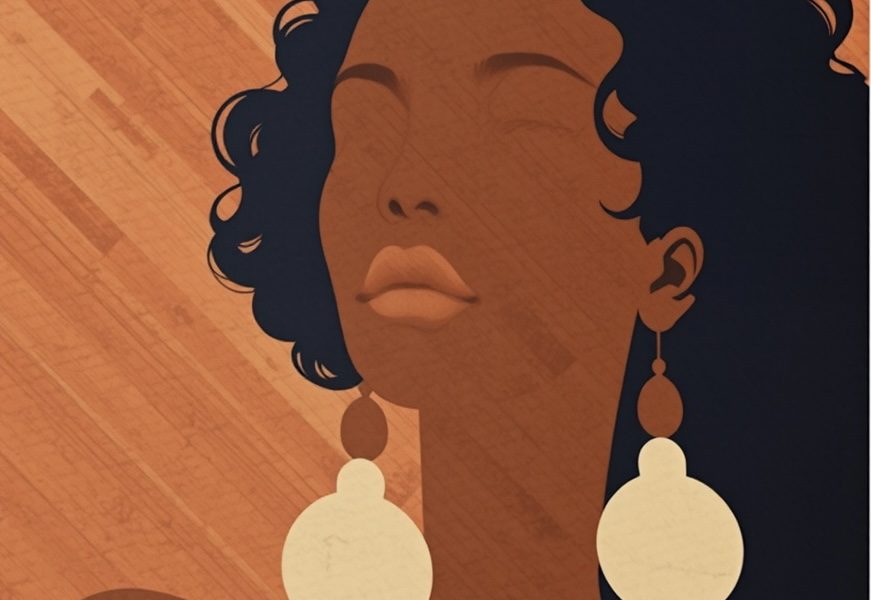Whenever a woman who identifies as Muslim is applauded on the internet, it doesn’t matter where on the tangled web it is or how impressive her achievements are, they are always there – somewhere in the comment section. The contingency of Muslim men who show up with the sole purpose of telling her, and the world, how this woman – usually her dressing, and almost always her actions – is wrong, not permitted in Islam or not befitting for a Muslim woman.
Contrary to the courtesy given to many Muslim men who are celebrated and readily claimed by the Ummah, (despite their achievements in many ‘non-islamic’ activities), such women will be deemed not Muslim enough, or not human enough, to deserve even the most basic courtesy of ‘say what is good or keep silent!’ People, most worrisome being the Muslim men, are often vicious in their scathing comments, feeling superior and entitled enough to pass judgement on someone they do not know from Hauwwa, just because they happen to lay claim to the same religion.
And for so long, like a lot of Muslim women, I never say anything to such men, choosing to not engage, to walk away, to rise above – remind myself that “…the slaves of the Most Merciful are those who walk upon the earth with dignity and when the ignorant address them (harshly), they say (words of) ‘Peace!’ ”
Encroaching Women’s Spaces
The first day I saw a Muslim woman call out a Muslim man for the misappropriation of our agencies that we have – collectively as a community – so become complicit in, I was at the King AbdulAziz international airport in Jeddah, Saudi Arabia. One of the airports for welcoming pilgrims, it is large, loud, usually crowded and very busy. And in the midst of that chaos, the only place that women – a significant proportion of us veiling our faces – could claim some respite was in the gender-segregated bathrooms and designated prayer spaces.
So, on this fateful afternoon, while most of us were catching a breather; our niqabs removed or flipped over our heads; praying, sleeping or just lounging in the one place we could somewhat relax in the prayer space…
Yup, you guessed right, a man walks in!
Now, do not let the negative hype about Saudi Arabia deceive you, this kind of behaviour is not the norm. Indeed, most men would not enter designated female spaces in that country, even when they appear empty. They would call out from the outside; they would ask a woman or a boy to go in and inform the women or verify that there are no women inside to be potentially discomfited by their presence; before venturing – only as a matter of necessity – into such spaces. But there are invariably some ‘not all’ men that take everything as their due and on this day, we came face to bare face with one such.
In the pandemonium that ensued; women rushing helter-skelter to cover up with whatever was closest at hand, this man brazenly searched out our persons till he found the one he sought – a woman of undoubtedly some relation to him. He delivered a terse command to her and turned to leave, with the type of audaciousness that men seem to find only in relation to women.
He almost got away with it, too. The entire debacle lasted just about a minute. And we, the women so accosted, so disrespected in our own space, were too flustered – too conditioned to accept responsibility for men’s excesses – to do more than scramble in our attempts to cover up, fumbling with our discarded clothing, cringing as his eyes violated us, shouldering the guilt for what he wrought.
All except one!
She was a Black Saudi woman, mid-to-late thirties, and she was the closest sight to a superhero as I have ever beheld in real life – standing tall, refusing to cower or cover, as she told him off for venturing into this space he knew was designated as female only.
The Awakening!
Whenever I recollect this incident, I like to think his ears were ringing as he slunk away, refusing – as such ones are wont to – to apologize or even admit to any wrongdoing. I spend a few seconds wondering about the women in his life, what it would be like to be intimately connected to such a man. Then I turn the introspection on myself.
Why was my first instinct to dive for cover? Why did I feel the need to compensate for his (mis)behaviour? And why didn’t I confront him? If I had done my part, religiously, and he was the transgressor, why did I feel guilty?
I wish I can say I found all the answers – the ones I did are irrelevant anyway, perhaps a product of my own unique experiences, circumstances and conditioning. And there was no way I could attempt to answer for the other women in that room – or every other woman through the ages who accept the misconducts of men; bending over backwards to excuse them, accommodate them, compensate for them, all the while shouldering the blame and guilt for the actions of someone else.
What this incidence did awaken in me, though, was the realization that we need to reclaim our spaces as Muslim women. Increasingly these ‘spaces’ have expanded to include not just the physical, but our agencies, our reputations, our bodies, our very identities – as women, as Muslims, as humans. We have to protect them from unprompted, unwarranted attack by those who lack a sense of boundary – and often common courtesy.
Personally, I still do not engage such men, especially in the world of online vitriol, because – to co-opt the popular phrase – I no longer talk to Muslim men about the rights of Muslim women. I am tired of having to explain to grown men that random, unrelated women do not want your opinions and judgements on the choices that they make in their lives. Not unless they ask for it. That accosting and deriding a woman for her choices cannot be explained away as “enjoining good and forbidding evil”. That it is not your place and trying to shove it under the cloak of “dawah” does not make it less offensive. And no, pulling out texts to serve your nefarious agenda doesn’t work either because “From the perfection of a person’s Islam is that he leaves (alone) what does not concern him.”
The unrelated Muslim woman on the street, on the news, on Twitter does NOT concern you! Muslim women are not the communal property of the Muslim male collective. Such reasoning, such proprietorial arrogance is exasperating at best and deadly at its most sinister – how many women have been targeted and violated, just so the perpetrators could teach “her menfolk” a lesson?
But this is not about men. This essay, this space, is for and about us. I am talking to my sisters here. These are my own tips for claiming back our spaces from men with boundary issues. Feel free to tailor them to suit your needs.
Hold on to your Deen
Much as they try to make it so, this Deen is not for any specific gender. We are all slaves of the Most-High. I chose to be Muslim, Allaah has favoured me with this, and I will not let any man and his perception or excesses deprive me of that. This means checking my intentions, continually seeking beneficial knowledge and following the examples of the Prophet and his companions, male and female. Letting the misogynistic ‘not all men’ drive us away from the blessing that is Islam should not be an option. This is where I call for developing a robust culture of female scholarship in the Islamic sciences because God knows we need it – it is our legacy, one we should all work to revive
Live!
I fully subscribe to the notion that the best revenge for someone who tries to keep you down is to thrive. Ignore the noise and detractors, be the best version of you that you want to see. Study that course, build that business, chase that dream, take up space. Be you. And if the person you need to be is laid-back and concentrating on your home front, saving your energy for impacting your own corner of the world – then be that. We would not allow others’ perceptions or limitations strip us of the full range of our choices in ways Islam doesn’t.
Set your boundaries and Guard it
By this, I mean in your interaction with the larger society, especially of (Muslim) men. I prefer not to engage unless absolutely necessary. I’m not saying this is feasible, or even desirable for everyone but it is important to define a limit to the people we allow into our circle, whom we give access to our time and mental energy. You get to decide the who, what, how, and how much of your accessibility.
Post Armed Guards Around Your Boundaries
Until we begin to call out the men who overstep, this state of affairs will not change. Like the super-hero of that long-ago afternoon in Jeddah, we need to check men who barge uninvited into feminine spaces and proceed to spew all over it. Whether that means naming and shaming their actions (because no, we do not hate men), educating them with evidence (if you have them and can be bothered to) or just blocking them on social media (because your timeline is your space, too), defend your territories, ladies!
Rally for the Tribe
The narrative that women are in some sort of competition with each other, hijabis against non-hijabis, niqabis against hijabis, first against subsequent wives, and the list goes on, is one of the impediments to us harnessing our collective power. Other women are your support, not your competition – learn to lean on them, and vice versa.
We are women; Muslim women. It’s time the world hears us roar. Enough of quoting what our forebearers did, and how the first university ever was established by a Muslim woman, blah de blah. It is time we DO what they did. We show up and take up space. Be the best version of you – the one you dare to dream of only in the privacy of your mind. Be that woman. And if anyone challenges our right to be there, anywhere, we – all of us – should rally around and defend our own.
This is how we protect our spaces, our very selves, for ourselves.




